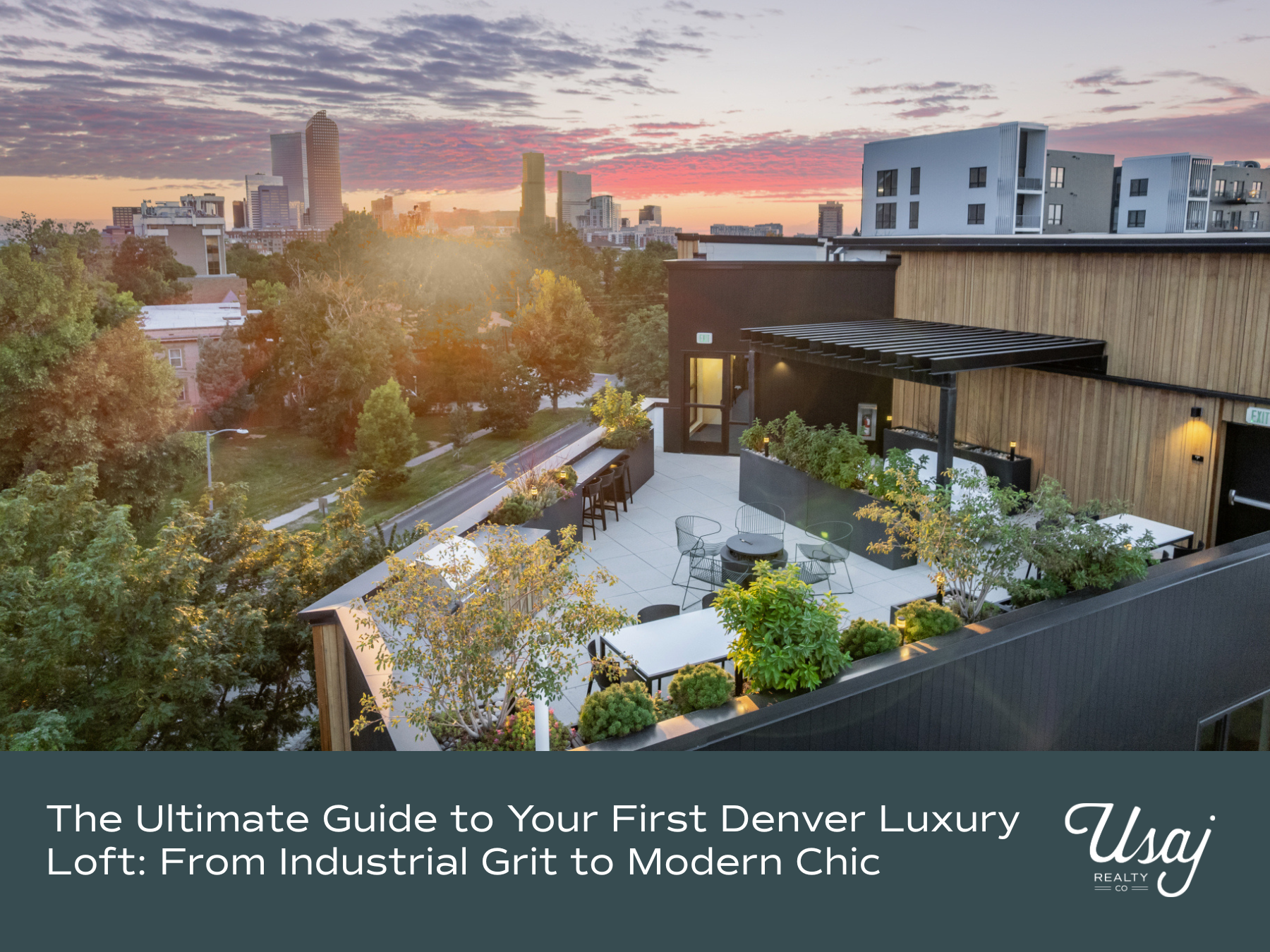Investing in Rental Properties in Denver
Can you Become Wealthy Investing in Real Estate?
Some of the wealthiest individuals in the world have made their fortune from real estate. Think Arnold Schwarzenegger, Ray Kroc (McDonald’s founder), and even Vanilla Ice. Real Estate is a tangible object that you can touch, wrap your arms around and even live in! Shelter is one of the three basic needs every human being requires and a home will never go out of style.
Why Invest in a Single Family Home?
Investing in single family homes and condos are the simplest way to get started in the rental property business. It’s easy to grasp this concept and your financial risk is low compared to other forms of investing. Let’s say you bought five 1-bedroom condos at the Glass House in Denver back in 2011 for an average of $275,000 a piece and financed them through 15 year loans. Today these homes would be over half paid off and would be worth well more than what you paid for them. The kicker is that these condos are renting for more than $2,000 a month. That’s $10,000 a month in passive income.
Rules of Thumb to Build Wealth
Rule of 72
The Rule of 72 is used to estimate the number of years it would take to double your money at an annual rate of return. The simple formula is 72 / (interest rate). 72/8% = 9 years to double your investment.
Leverage
Leverage is the act of using borrowed money to increase the return of an investment. In real estate, you use borrowed money from a bank (“mortgage”) to buy residential properties. Taking the above example of a $275,000 condo, if you purchased that condo in cash and it’s worth $400,000 today, you would have a 68% return on your investment plus the collected rent. If you leveraged that purchase with a 10% down payment loan from a bank ($27,500), you would have a 680% RETURN!
Five Benefits of Investing in Residential Real Estate in Denver
1. Cash Flow
Cash flow is the measurement of money coming in and going out of your business. Rental income is the cash flow coming into your business in a residential investing scenario. Mortgage payments, and property maintenance and management fees would be cash flow going out of your business. The goal of your cash flow is to break even or be positive.
2. Leverage
You can own real estate with as little as 10-25% down. You can borrow money and equity out of your other investment properties to buy new homes. Using leverage in the short term can help you get to your long term goal of owning your properties free and clear.
3. Debt Reduction
When you own rental properties, someone else (your renter) is paying off your debt. The tenants you place in your properties are helping you achieve financial freedom by paying off your mortgages.
4. Tax Savings
As a property owner, you can write off your expenses and depreciate the home to save on taxes.
5. Appreciation
The value of your properties will appreciate 5-6% on average over the long term. See Denver’s latest numbers on the real estate market here, but know it is wise to plan on 5% over the life of your property.
Denver Rental Property Example
Let’s look at an example of purchasing a condo in the Spire in Downtown Denver as your first investment property:
- $400,000 is the price
- $100,000 for a 25% down payment
- $300,000 loan at 4% for a 30 year fixed rate
- $1,702.25 monthly principal and interest payments
- $236.67 monthly taxes and property insurance
- $275 homeowner association fees
- $2,600 monthly rental income
- $2,213.92 total monthly expenses
- $386.08 monthly cash flow
Let’s look at the five benefits of owning this Denver investment property:
Cash Flow: $4,632.96/year | $4,632.96/$100,000 = 4.6% Return on Investment
Leverage: $400,000 real estate property is owned for an $100,000 cash investment.
Debt Reduction: $3,498.58 in mortgage principal reduction that is paid by your tenant. Your renter is paying off your home! $3,498.58/$100,000 = 3.5% ROI
Tax Savings: About $10,000/year in depreciation which means your income from the investment property will not be taxed.
Appreciation: We have seen a significant amount of appreciation over the past couple years, over 10% in some neighborhoods. If we plan for a conservative increase of 5% appreciation, $20,000/$100,000 = 20% If the condo doesn’t appreciate at all, there is no return for that year.
Here’s a breakdown on your investment property:
-
- 4.6% from Cash Flow
- 3.5% from Debt Reduction
- 20% from Appreciation
That is an estimated 28.1% ROI on your first year of owning your investment property in Denver. When this property becomes free and clear, you will be generating over $27,000 a year in passive income. By the time this property is paid off, rents are most likely going to be higher and you will have had a significant amount of appreciation.
How do I find Money for a Down Payment on a Property in Denver?
One of the easiest ways to find money for a down payment on an investment property is to refinance your current primary residence. If you purchased a home 7-10 years ago and haven’t refinanced your home, this is the perfect place to find the cash. Instead of refinancing your home to lower your monthly payment, use the extra money for a investment property down payment and keep the monthly mortgage payment on your primary residence the same.
Example:
- A home you purchased in 2008 for $450,000 @ 7% (30 years) = $2993.86/mo
- In Denver, you would most likely be able to refinance and have the same monthly payment. The only difference is that you would have $180,000 in cash you could put towards an investment property! $630,000 @ 4% 30 Years = $2993.86/mo
6 Tips to Becoming Wealthy by Investing in Rental Properties
- Buy houses and condos that people want to live in
- Be a long term investor
- Make sure to take care of your property and not be a slum lord
- Start investing now
- Know how much money you need and come up with a plan
- Work with people who know what they’re doing
OK, I Want to Invest in Rental Properties. Now What?
- Choose a qualified realtor in Denver who can help with setting your investment goals and choosing the criteria for the types of properties you will buy.
- Set up your business. This means finding a lender who can pre-approve you for a loan. Discuss with your accountant and attorney how the title will be held. Do you need to create an LLC? Interview property managers to handle tenant screening, leasing and property maintenance. If you want to manage the property yourself, make sure you have all the necessary paperwork, bookkeeping systems and vendor phone numbers to take care of your rental property.
- Work with your realtor to have properties sent to you as they come on the market. When a rental property peaks your interest, have your realtor run a market analysis and give you an idea of how much rent the property would demand.
- After you have found an investment property that you think would work, drive through the neighborhood. Determine who you think would want to live there. Call your realtor and set up a showing to see the property. If this all looks good, run your numbers to make sure you have cash flow on the rental property.
- Once you’ve decided that this property will work, it’s time to write the contract, get the property inspected and go to closing. Have your property manager on standby to get a tenant in as soon as possible.
Letting Passive Income do the Work for You
As you can see, it’s not that hard to start creating a significant amount of wealth through passive income. Letting your investment properties work for you can create a worry-free retirement and better quality of life. With interest rates low and rental needs at an all time high, what are you waiting for?
(Editor’s note: This blog was originally published in April of 2017. It has been edited and updated to provide current information).




